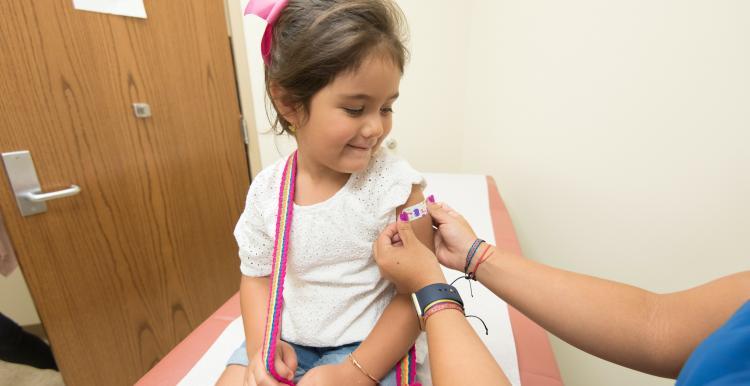Make sure your children are vaccinated against polio

The message comes after the UK Health Security Agency declared a national incident due to poliovirus being found in sewage samples in London.
Although the risk remains low, polio can be very serious, as many older people will remember from the days before vaccination became the norm. We urge all parents to check and if their children are not fully vaccinated to speak to their GP and make sure they are fully protected.
Polio is caused by a virus that spreads easily when an infected person coughs or sneezes.
Most people who get polio do not have symptoms. Some people get mild, flu-like symptoms such as a high temperature, extreme tiredness, headaches, being sick, a stiff neck and muscle pain. These symptoms usually last up to 10 days. Rarely, polio can cause difficulty using your muscles, usually in the legs. Occasionally it can be life-threatening if the paralysis affects the muscles used for breathing.
What you can do
The best way to prevent polio is to make sure you and your child are up to date with your vaccinations. The polio vaccine is part of the NHS routine childhood vaccination schedule. It is given when your child is:
- 8, 12 and 16 weeks old as part of the 6-in-1 vaccine
- 3 years and 4 months old as part of the 4-in-1 (DTaP/IPV) pre-school booster
- 14 years old as part of the 3-in-1 (Td/IPV) teenage booster
You need to have all these vaccinations to be fully vaccinated against polio.
Parents/carers can also check their child’s vaccination status in their Red Book and people can contact their GP surgery to discuss vaccination further if they are not fully up to date.
You can have a polio vaccination at any point if you have never had one before, even if you are not travelling to a country with a risk of getting polio. You should also get vaccinated even if you have had polio before as it protects against different types of polio. It is usually free on the NHS.
How to prevent polio
Always wash hands after using the toilet and before eating or drinking and make sure that your vaccinations are up to date.


